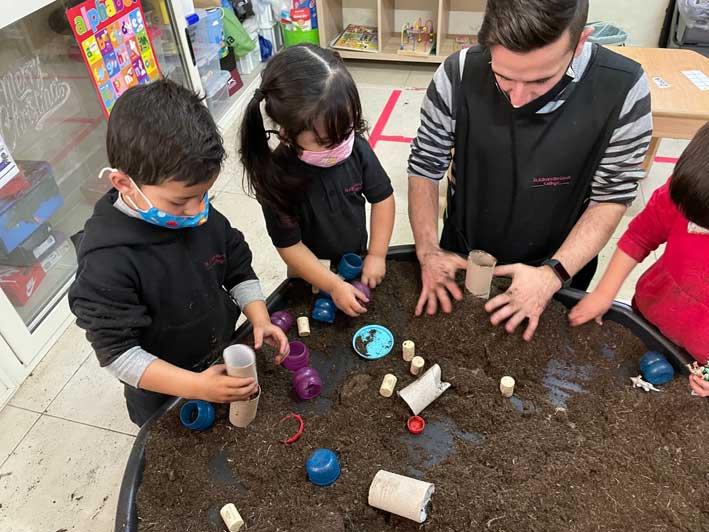St. Albert the Great College opened its doors to pre-school aged students within its Kindergarten sector for the very first time this scholastic year 2020-2021. The school ethos, "We welcome everyone, We care, We seek fulfilment, We read and change the world.", plays a major role in why a Montessori inspired approach was singled out as the system we wanted to adopt. At St. Albert the Great College, we value our sense of community and we are open to all diversity. A good pre-school experience can propagate the bases of inclusion in terms of gender, race, religion, and ability.
The course "The Child First: Montessori, Reggio Emilia System, And Contemporary Approaches to Pre-School Education" was identified by the College to achieve this target. This training opportunity gave us a broader understanding of these practices, policies, and systems in this educational sphere that the college was seeking for the educators at the Kindergarten sector, paving the way for us to be able to foster excellence and innovation in preschool education.

Initially, the idea was to attend the training in Italy and experience good practice of the Montessori method, in particular. This would form the basis of our practice in this area, but given the current circumstances, we were unable to do so. Nonetheless, the online sessions conducted by a professional Trainer from Europass Teacher Training Centre, Florence, Italy, helped us gain the knowledge required.
This course offered the necessary training on the key principles of the Montessori method and how to implement Montessori approved activities into our daily practice. The Montessori classroom is quite different from the classroom us Maltese educators are accustomed to. In the Montessori Method, children do not have typical toys to play with, instead, the educators offer practical life experiences that the children can learn as they work independently with specially designed learning materials. Through this course we were able to see a classroom setting and educational methods which differ from the typical Maltese system. The role of the educator here, is to prepare suitable activities for the needs of the child and present to them the best learning experience possible. The goal of the Montessori educator is to lead the child to be independent and self-reliant. As Maria Montessori explained: "Montessori teachers are not servants of the child...to wash, dress and feed him - they know that he must do these things for himself in developing independence. We must help each child act for himself, will for himself, think for himself..." - This is what all educators hope for: intrinsically motivated students who are curious and ready to learn.

In this course we also delved into the Reggio Emilia approach, founded by Loris Malaguzzi. Typically, Maltese kindergarten schools are usually inspired by this approach the most. Here, children are seen as active learners. Loris Malaguzzi believed that children are powerful and capable individuals, with the ability and desire to construct their own knowledge. Every child is a subject of right because every child is unique. Some of the things that we like about this approach is that parents play a fundamental role in the children's learning process. In this approach all the persons that the child comes in contact with (from the janitor to the headmaster) play an important part in the child's school experience. The educator is viewed as the helper and co-learner. The learning environment is so important, it is considered the third teacher.
Findings show that children who attend high-quality preschool, enter school with better pre-reading skills, richer vocabularies, and stronger basic math skills than those who do not. That is our primary aim, a sound preschool experience that offers a strong foundation to our students' educational journey.
We would like to thank the school for providing us with this opportunity as well as the European Union Programme Agency (EUPA) for providing the funds necessary for this Erasmus+ project.
Mr Emanuel Zammit and Ms Kylie Stagno both teach at St Albert the Great College as a Kindergarten teacher and learning support educator, respectively.
